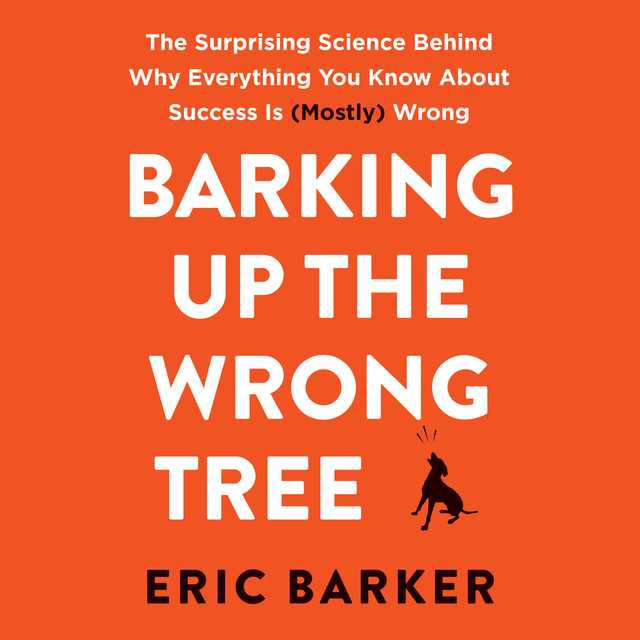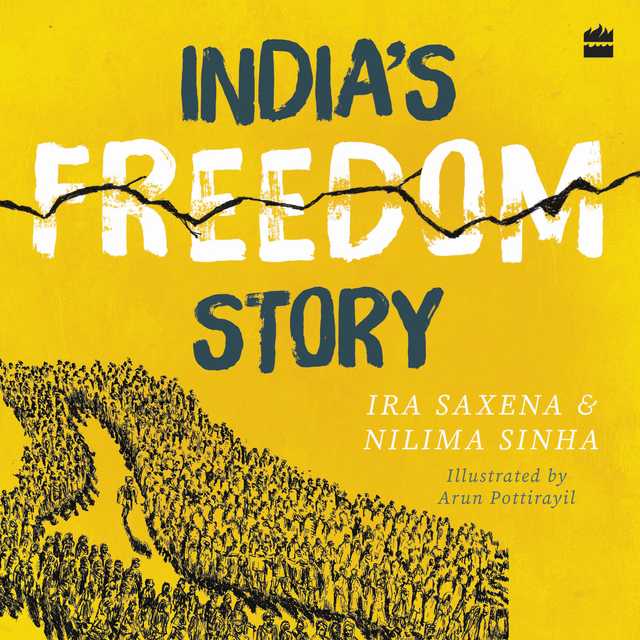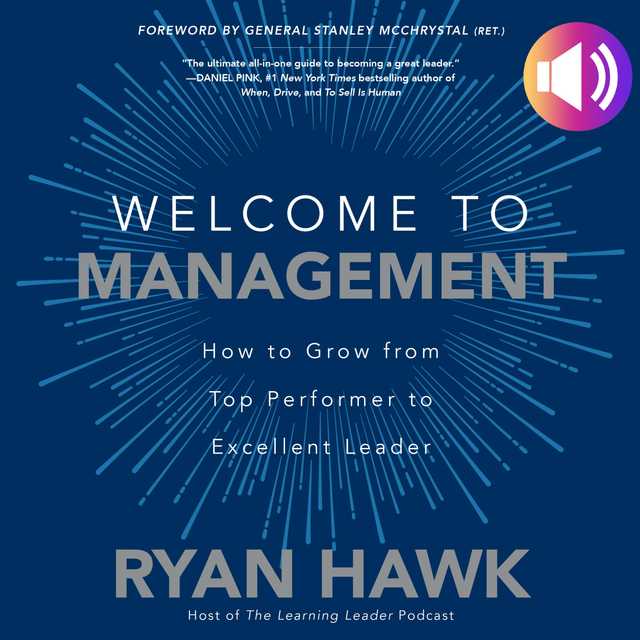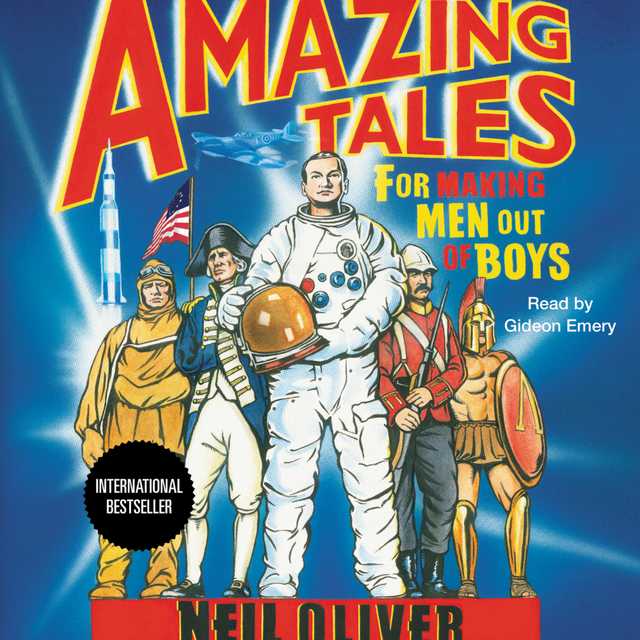Barking Up the Wrong Tree Audiobook Summary
Much of the advice we’ve been told about achievement is logical, earnest…and downright wrong. In Barking Up the Wrong Tree, Eric Barker reveals the extraordinary science behind what actually determines success and most importantly, how anyone can achieve it. You’ll learn:
* Why valedictorians rarely become millionaires, and how your biggest weakness might actually be your greatest strength
* Whether nice guys finish last and why the best lessons about cooperation come from gang members, pirates, and serial killers
* Why trying to increase confidence fails and how Buddhist philosophy holds a superior solution
* The secret ingredient to “grit” that Navy SEALs and disaster survivors leverage to keep going
* How to find work-life balance using the strategy of Genghis Khan, the errors of Albert Einstein, and a little lesson from Spider-Man
By looking at what separates the extremely successful from the rest of us, we learn what we can do to be more like them–and find out in some cases why it’s good that we aren’t. Barking Up the Wrong Tree draws on startling statistics and surprising anecdotes to help you understand what works and what doesn’t so you can stop guessing at success and start living the life you want.
Other Top Audiobooks
Barking Up the Wrong Tree Audiobook Narrator
Roger Wayne is the narrator of Barking Up the Wrong Tree audiobook that was written by Eric Barker
Eric Barker is the creator of the blog Barking Up the Wrong Tree, which presents science-based answers and expert insight on how to be awesome at life. His work has been mentioned in the New York Times, The Wall Street Journal, The Atlantic Monthly, TIME magazine, The Week, and Business Insider. He is a former Hollywood screenwriter, having worked on projects for Walt Disney Pictures, Twentieth Century Fox, and Revolution Studios. He is a graduate of the University of Pennsylvania and holds an MBA from Boston College and a Master of Fine Arts from UCLA.
About the Author(s) of Barking Up the Wrong Tree
Eric Barker is the author of Barking Up the Wrong Tree
More From the Same
- Author : Eric Barker
- Plays Well with Others
- Publisher : HarperAudio
- Abraham
- American Gods [TV Tie-In]
- Dead Ringer
- House of Sand and Fog
- Prey
Barking Up the Wrong Tree Full Details
| Narrator | Roger Wayne |
| Length | 9 hours 0 minutes |
| Author | Eric Barker |
| Category | |
| Publisher | HarperAudio |
| Release date | May 16, 2017 |
| ISBN | 9780062675040 |
Subjects
The publisher of the Barking Up the Wrong Tree is HarperAudio. includes the following subjects: The BISAC Subject Code is Personal Growth, Self-Help, Success
Additional info
The publisher of the Barking Up the Wrong Tree is HarperAudio. The imprint is HarperAudio. It is supplied by HarperAudio. The ISBN-13 is 9780062675040.
Global Availability
This book is only available in the United States.
Goodreads Reviews
☘Misericordia☘
December 27, 2017
Readable to the extreme. Loved the way the author stepped back from all the psychology popular stuff. He went to great length to show that all the 'go and become the hero', 'get it done' approach, 'don't say quits until you drop!' stuff can be counterproductive at times, though not always. Also loved the author's way of thinking. He basically employs the recipe for dealing with most tasks where one-size-fits-all answers are unlikely to work.Surprisingly memorable, with bright examples easing the reader into every discussion. Wow! A lot of things here make a lot of sense. Way more than I expected. PS I thought a lot on what exactly this book reminded me of, since this no straight self-help. And I remembered: the Freakonomics series is really similar to this one.Q: As far back as the 1800s, scientists like Philippe Tissié and August Bier noted that an unsound mind can help an athlete ignore pain and push his or her body beyond its naturally conservative limits.I don’t know about you, but my high school guidance counselor never told me that hallucinations, mailbox assaults, and generalized insanity were vital to being a world-renowned success at anything. I was told to do my homework, play by the rules, and be nice.All of which raises a serious question: What really produces success? (c)Q: Do “nice guys finish last”? Or first?Do quitters never win? Or is stubbornness the real enemy?Does confidence rule the day? When is it just delusion? (с) Sounds like just the book I might love, since it looks at both sides of an argument, any argument!Q: In each chapter we’ll review both sides of the story. We’ll see the strengths of each perspective. So if anything seems like a slam-dunk or a contradiction, hang with me. Both angles will present their case, much like a trial. Then we’ll settle on the answer that gives the best upside with the least downside.In chapter 1, we’ll look at whether playing it safe and doing what we’re told really produces success. We’ll learn about what Harvard professor Gautam Mukunda calls “intensifiers.” Like Jure Robič’s insanity, intensifiers are qualities that, on average, are negative but in certain contexts produce sweeping benefits that devastate the competition. We’ll learn why valedictorians rarely become millionaires, why the best (and worst) U.S. presidents are the ones who subvert the system, and how our biggest weaknesses might actually be our greatest strengths.In chapter 2, we’ll find out when nice guys finish first as well as when Machiavelli was right on the money. We’ll talk to a Wharton School professor who believes in compassionate business and altruism, and a teacher at Stanford whose research shows hard work is overrated and kissing up is what gets promotions. We’ll look at pirates and prison gangs to see which rules even rule breakers follow, and find out how to strike the right balance between ambitiously getting ahead and being able to sleep at night.In chapter 3, we’ll dive into Navy SEAL training and explore the emerging science of grit and resilience. We’ll talk to economics Ph.D.s to calculate the best time to double our efforts and when to throw in the towel. Kung fu masters will teach us when being a flaky quitter is a great idea. And we’ll learn the silly word that can help us decide when to stick with something and when giving up is the best move.Chapter 4 looks at whether it really is “what you know” or “who you know.” We’ll see how the most networked employees are often the most productive but that the greatest experts almost invariably classify themselves as introverts (including an astounding 90 percent of top athletes). We’ll get insights from the most connected guy in Silicon Valley and learn how to network without feeling sleazy.In chapter 5, we’ll look at attitude. We’ll see how confidence can push us past what we think we’re capable of but how that needs to be balanced with a grounded view of the challenges ahead. We’ll learn how the emerging science of “mental contrasting” can help us determine when to go all in and when to think twice. Most important, we’ll look at new research that shows why the entire confidence paradigm might be problematic at its core.In chapter 6, we step back to view the big picture and try to see how success in career aligns with success in life—and when it doesn’t. Is there any place for work–life balance in our 24/7 go, go, go world? Harvard Business School’s Clayton Christensen and Genghis Khan provide examples of how to find peace in a fast-moving office. We’ll get lessons from tragic case studies of legends who achieved success but paid too steep a price, sacrificing family and happiness. (c)Q: So why are the number ones in high school so rarely the number ones in real life? There are two reasons. First, schools reward students who consistently do what they are told. Academic grades correlate only loosely with intelligence (standardized tests are better at measuring IQ). ... “Essentially, we are rewarding conformity and the willingness to go along with the system.” Many of the valedictorians admitted to not being the smartest kid in class, just the hardest worker. Others said that it was more an issue of giving teachers what they wanted than actually knowing the material better. Most of the subjects in the study were classified as “careerists”: they saw their job as getting good grades, not really as learning.The second reason is that schools reward being a generalist. There is little recognition of student passion or expertise. The real world, however, does the reverse. ... If you want to do well in school and you’re passionate about math, you need to stop working on it to make sure you get an A in history too. ... Shawn Achor’s research at Harvard shows that college grades aren’t any more predictive of subsequent life success than rolling dice. A study of over seven hundred American millionaires showed their average college GPA was 2.9. (c) And with dice we could have expected a 2.5, if their grades vary between 0 and 5. Q: Winston Churchill should have never been prime minister of Great Britain. He wasn’t someone who “did everything right,” and it was shocking that he was elected. His contemporaries knew he was brilliant—but he was also a paranoid loose cannon who was impossible to deal with. ... Churchill was a maverick. He did not merely love his country; he displayed a clear paranoia toward any possible threat to the empire. He saw even Gandhi as a danger and was beyond outspoken in his opposition to what was a pacifist rebellion in India. He was the Chicken Little of Great Britain, passionately railing against all opposition to his country, great, small—or imagined. But this “bad” quality is the key to why he is one of the most revered leaders in world history.This Chicken Little was the only one who saw Hitler for the threat he was. Chamberlain, on the other hand, regarded Hitler as “a man who could be relied upon when he had given his word.” The entrenched British leadership was convinced appeasement was the way to quell the Nazis.When it mattered the most, Churchill’s paranoia was prescient. (c)Q: Gautam Mukunda speculated that the reason for the inconsistency in the research was there are actually two fundamentally different types of leaders. The first kind rises up through formal channels, getting promoted, playing by the rules, and meeting expectations. These leaders, like Neville Chamberlain, are “filtered.” The second kind doesn’t rise up through the ranks; they come in through the window: entrepreneurs who don’t wait for someone to promote them; U.S. vice presidents who are unexpectedly handed the presidency; leaders who benefit from a perfect storm of unlikely events, like the kind that got Abraham Lincoln elected. This group is “unfiltered.” By the time filtered candidates are in the running for the top spot, they have been so thoroughly vetted that they can be relied upon to make the standard, traditionally approved decisions. They are effectively indistinguishable from one another—and this is why much of the research showed little effect for leaders.But the unfiltered candidates have not been vetted by the system and cannot be relied upon to make the “approved” decisions—many would not even know what the approved decisions are. They do unexpected things, have different backgrounds, and are often unpredictable. Yet they bring change and make a difference. Often that difference is a negative. Since they don’t play by the rules, they often break the institutions they are guiding. A minority of unfiltered leaders are transformative, though, shedding organizations of their misguided beliefs and foolish consistencies, and turning them toward better horizons. These are the leaders that the research said have enormous positive impact. In his Ph.D. thesis, Mukunda applied his theory to all the U.S. presidents, evaluating which ones were filtered and which unfiltered, and whether or not they were great leaders. The results were overwhelming. His theory predicted presidential impact with an almost unheard of statistical confidence of 99 percent.The filtered leaders didn’t rock the boat. The unfiltered leaders couldn’t help but rock it. Often they broke things, but sometimes they broke things like slavery, as Abraham Lincoln did.Mukunda understood firsthand. His unconventional Ph.D. thesis made him an outlier in the academic job market. Despite a Harvard and MIT pedigree, he received only two job interviews after more than fifty applications.(c)Q: Glenn Gould was such a hypochondriac that if you sneezed while on a phone call with him, he’d immediately hang up. ... (c)Q: Let’s talk about orchids, dandelions, and hopeful monsters. (I know, I know, you talk about these things all the time and this is nothing new to you. Please indulge me.) (c)Q: Why do some people end up crazy-brilliant and others end up crazy-crazy? ... They seem to possess just the right amount of weirdness.(c)Q: Andrew Robinson, CEO of famed advertising agency BBDO, once said, “When your head is in a refrigerator and your feet on a burner, the average temperature is okay. I am always cautious about averages.”(c)Q: It’s a matter of basic statistics. When it comes to the extremes of performance, averages don’t matter; what matters is variance, those deviations from the norm. Almost universally, we humans try to filter out the worst to increase the average, but by doing this we also decrease variance. Chopping off the left side of the bell curve improves the average but there are always qualities that we think are in that left side that also are in the right. (c)Q: Would you hire a psychopath? No. And the research shows that psychopaths don’t do well on average. Most people would just stop there, but a study titled “Personality Characteristics of Successful Artists” showed that top performers in creative fields demonstrate markedly higher scores on measures of psychoticism than lesser artists. Another study from the Journal of Personality and Social Psychology showed that successful U.S. presidents also demonstrate higher scores on psychopathic characteristics.Often intensifiers masquerade as positives because we give successful people the benefit of the doubt. It’s the old joke that poor people are crazy and rich people are “eccentric.” Traits like obsessiveness are framed as positives for those already in the successful camp and negatives for others. We all know some who benefit from perfectionism and others who are just “crazy.” (c)Q: Research by Gallup shows that the more hours per day you spend doing what you’re good at, the less stressed you feel and the more you laugh, smile, and feel you’re being treated with respect. (c)Q: Ask yourself, Which companies, institutions, and situations value what I do? Context affects everyone. (c)Q: We tend to think experts are experts just because of their unique skills and we forget the power of context, of knowing one’s way around, of the teams who support them, and the shorthand they develop together over time. (c) And another thing about that is when the company you're with undergoes drastic changes, sometimes it's best to leave when you start feeling the 'pond' having undergone changes to the worse. Q: This was well illustrated by how Toyota helped a charity. The Food Bank for New York City relies on corporate donations to function. Toyota had donated money—until 2011 when they came up with a far better idea. Toyota’s engineers had dedicated countless hours to fine-tuning processes and realized that while any company could donate cash, they had something unique to offer: their expertise. So they decided to donate efficiency.Journalist Mona El-Naggar described the results:At a soup kitchen in Harlem, Toyota’s engineers cut down the wait time for dinner to 18 minutes from as long as 90. At a food pantry on Staten Island, they reduced the time people spent filling their bags to 6 minutes from 11. And at a warehouse in Bushwick, Brooklyn, where volunteers were packing boxes of supplies for victims of Hurricane Sandy, a dose of kaizen cut the time it took to pack one box to 11 seconds from 3 minutes. (c) And that's a really inspiring thing about the whole kaizen thing. Q: Feeling powerless actually makes you dumber. (c)Q: Eighty percent of our evaluations of other people come down to two characteristics: warmth and competence. And a study from Teresa Amabile at Harvard called “Brilliant but Cruel” shows we assume the two are inversely related: if someone is too nice, we figure they must be less competent. In fact, being a jerk makes others see you as more powerful. Those who break rules are seen as having more power than those who obey. (c)Q: But hold on—it gets worse. Ass kissers aren’t the only ones who thrive. Jerks do too. (c) Q: Rude people also have better credit scores. (c) Now that seems to be an urban legend. Q: A study bluntly titled “Bad Is Stronger than Good” shows that in a shocking number of areas bad things are more impactful and longer lasting than good things: “Bad emotions, bad parents, and bad feedback have more impact than good ones, and bad information is processed more thoroughly than good . . . Hardly any exceptions (indicating greater power of good) can be found. Taken together, these findings suggest that bad is stronger than good, as a general principle across a broad range of psychological phenomena.” (c) And here I and my fixation on happy endings go angry. Q: And I can’t help but mention that an informal study showed that ethics books are 25 percent more likely to be stolen than the average library book. (c) Hilarious! Q: I’m going to stop now because my publisher won’t let this book be packaged with antidepressants. (c) Or chocolate. Q: What happens when you go total Tony Soprano and start whacking everyone who causes problems? Everyone will respect you and no one will want to work with you. Being a mob boss who is too violent has an inherent irony to it. Would you want to work for someone whose response to late expense reports is two bullets to the head? I didn’t think so. (c)Q: These savvy businessmen of the oceans were not all crazed psychopaths with eye patches. In fact, according to Blackbeard expert Angus Konstam, that famed pirate, over the course of his career, killed exactly zero people. And there are no cases on record of anyone walking the plank. Nope. Not one.So why do we have this impression of them as bloodthirsty savages? It’s called marketing. It’s much easier, cheaper, and safer to have people surrender quickly because they’re terrified of you than it is to fight every battle, so pirates were sharp enough to cultivate a brand image of barbarity. (c)Q: Pirate ships were very democratic places. (c)Q:
Fahri
May 10, 2019
Buku yang membahas tentang kesuksesan mungkin sudah sangat banyak yang beredar. Di mana buku-buku tersebut kebanyakan membahas hal-hal apa saja yang dapat membantu kita untuk meraih kesuksesan. Biasanya hal-hal tersebut bersifat wajar dan normal, seperti kerja keras, disiplin, bakat, dan lain sebagainya. Namun, berbeda dengan buku-buku tentang kesuksesan lainnya, Mendaki Tangga Yang Salah menyorot beberapa hal yang mungkin dianggap negatif dan dipandang sebelah mata dalam meraih kesuksesan. Berbagai hal ini dibahas bersamaan dengan hal positif lainnya dengan sudut pandang yang berasal dari kisah hidup, penelitian, dan gagasan dari para pakar, dan tokoh terkenal. Di mana hal-hal yang biasanya kita anggap sebagai penghambat, ternyata bisa juga berperan penting dalam meraih kesuksesan. Bagaimana faktor-faktor penentu kesuksesan ini dibahas lewat dua sisi, positif dan negatif. Selain itu Eric Barker juga menjelaskan berbagai cara dan tindakan yang bisa kita lakukan untuk menerapkan, menyiasati, dan mengoptimalkan berbagai hal tersebut ke dalam kehidupan kita agar bisa meraih kebahagiaan yang memicu kesuksesan. Buku ini dibagi menjadi enam bab yang setiap babnya membahas hal-hal yang membantu kita menggapai kesuksesan. Uniknya, setiap pembahasan tidak hanya mengangkat sisi positif dari sebuah sikap, tapi juga sisi negatifnya. Mulai dari percaya diri, keteguhan, relasi, dan masih banyak lagi. Pada bab pertama kita akan diajak untuk melihat apakah kita harus bermain aman agar bisa sukses? Menurut spekulasi Gautam Mukunda terdapat dua jenis pemimpin, yaitu "tersaring" dan "tidak tersaring". Pemimpin yang tersaring adalah pemimpin yang mendapatkan posisinya lewat saluran-saluran resmi, memperoleh kenaikan jabatan, bermain mengikuti aturan, dan memenuhi harapan. Sedangkan pemimpin yang tidak tersaring adalah pribadi yang melakukan hal-hal yang tidak terduga, mempunyai latar belakang yang berbeda, dan tidak bisa diprediksi. Pemimpin yang tidak tersaring bisa memiliki dampak yang kuat karena memiliki keahlian unik yang membedakannya dengan pemimpin tersaring. Biasanya keahlian unik ini bisa bersifat negatif, namun dalam kondisi tertentu bisa menjadi positif. Mukunda menyebutnya dengan sebutan pemekat yang di mana bisa merubah kelemahan kita menjadi kekuatan. Kita memerlukan optimisme dan kepercayaan diri agar bisa terus maju dan membentuk relasi. Namun, negativitas dan pesimise pun menolong kita untuk melihat masalah agar dapat kita perbaiki. Terkadang percaya diri yang terlalu tinggi bisa membutakan kita sehingga menolak untuk mendengarkan masukan dari orang lain. Akibatnya diri kita tidak mau belajar sehingga sulit untuk berkembang. Rasa percaya diri yang tinggi membuat kita merasa nyaman, memberi keteguhan, dan mengesankan orang lain, tapi juga bisa membuat kita menjadi pribadi yang angkuh, yang menolak orang lain, tidak mengalami peningkatan diri, dan mungkin akan kehilangan segalanya akibat pengingkaran. Dan dengan menjadi sosok yang kurang percaya diri akan memberikan dorongan dan sarana untuk kita menjadi seorang ahli yang lebih disukai orang lain. Namun, di antara percaya diri dan kurang percaya diri, kita lebih baik untuk memiliki bela rasa diri. Ketika percaya diri bisa mengacuhkan umpan balik yang tidak cocok dengan realitas internal kita, sehingga menyebabkan kurangnya perubahan. Ketika kurang percaya diri bisa memperlihatkan masalah tapi kita tidak siap untuk mengatasinya. Bela rasa diri merupakan jawaban yang tepat, di mana memungkinkan kita melihat masalah dan mampu mengatasinya.Apakah dengan bekerja keras kesuksesan bisa cepat kita raih? Mungkin jawabannya bisa iya asalkan kita bisa tahu akan batas akan kerja keras itu sendiri. Contohnya seperti atlet Ted Williams yang secara ekstrim terus berlatih, berlatih, dan berlatih. Karena saking sibuknya dengan latihan, Ted melupaka kehidupannya. Memang benar dia berhasil menjadi salah satu pemukul terbaik sepanjang sejarah baseball. Namun, kehidupan sosialnya bisa dibilang sangat mengkhawatirkan. Ted menjadi pribadi yang sangat ambisius dan perfeksionis sehingga memunculkan sikap tempramennya jika sesuatu tidak terjadi sesuai dengan kehendaknya. Di sini kita bisa melihat kerja keras itu memang perlu agar bisa menjadi yang terbaik, tapi apakah itu sepadan jika relasi kita dengan orang lain menjadi buruk? Padahal relasi merupakan salah satu faktor penting dalam mencapai kesuksesan. Maka dari itu Eric Barker menyarankan kita agar bisa memberi batas akan kerja keras yang kita lakukan. Dengan menyusun rencana yang jelas kita bisa membagi waktu dalam mengerjakan pekerjaan, menjalankan hobi, dan berkumpul bersama orang-orang yang kita cintai. Menurut para peneliti ada empat tolok ukur untuk kehidupan, yaitu:1. KEBAHAGIAAN = MENIKMATI2. PENCAPAIAN = MEMENANGKAN3. SIGNIFIKANSI/MAKNA = MEMPERHITUNGKAN4. WARISKAN = MELUASKANMelalui keempat tolok ukur tersebut, kita bisa membuat rencana agar bisa membagi waktu. Karena kesuksesan tanpa kebahagiaan sama saja dengan bohong, tapi kebahagiaan pasti akan mendatangkan kesuksesan.Secara keseluruhan Mendaki Tangga Yang Salah sedikit mengingatkan saya dengan buku Grit karya Angela Duckworth. Di mana kedua buku ini sama-sama membahas faktor penunjang untuk meraih kesuksesan. Hanya saja dalam Grit, Duckworth lebih memfokuskan pembahasannya pada satu faktor, yaitu kegigihan. Sedangkan dalam buku ini lebih banyak faktor yang dibahas dan salah satunya adalah kegigihan itu sendiri. Barker menyajikan studi ilmiahnya tentang kesuksesan dengan sudut pandang yang unik. Melalui dua sisi, yaitu positif dan negatif. Kita diperlihatkan bagaiamana dari kedua sisi tersebut memiliki kelebihan dan kekurangannya masing-masing. Dikemas dengan berbagai kisah, penelitian, dan gagasan dari orang-orang yang berpengaruh, menjadikan buku ini menarik untuk dibaca. Selain mendapatkan ilmu ilmiah tentang kesuksesan, kita juga disuguhkan dengan kisah-kisah yang tidak kalah menarik dari pesepeda yang gila, orang-orang yang tidak merasakan nyeri dan takut, pianis yang ganjil, pembunuh berantai, bajak laut, geng penjara, Angkatan Laut Amerika, racoon dari Toronto, pendeta Shaolin, berapa lama anda bisa menjadi Batman, angka Erdos, Newton dan Einstein, Ted Williams dan Spider-Man, perang radar antara Harvard dan MIT, serta masih banyak lagi. Bagi kalian yang ingin mendapatkan perspektif baru akan kesuksesan buku ini cocok untuk kalian lahap. Saya sarankan untuk membacanya secara perlahan agar ilmu yang ada bisa terserap dengan baik.
Mart
June 26, 2017
Have you ever read a self-help book that gave you all the answers, only to find that real world is far too messy to make use of “simple truths”? Or, from the other side of the genre, have you read a self-help book preaching how everything is relative, leading to the inevitable conclusion that you should stop making choices and stop trying in life? “Barking Up the Wrong Tree” falls in the sweet-spot between the dumb templates and the blind acceptance.The book explores research about life decisions and offers bits that hold scientifically true. Rather than giving a success plan to follow, it envisages likely outcomes of alternative paths. A lot is psychologically hardwired (sorry, you can’t “fake it till you make it”), but there are small choices and possibilities to optimise.Barker presents facts in a delightfully counterintuitive way. (Turns out the best way to impede a workplace opportunist who takes advantage of colleagues’ good will is… gossip!) The author has done the hard work of original investigation. You could tell because his stories and examples are not the standard recycled ones usually found in popular psychology. I also enjoyed how statistical comparisons are used to make scientific findings more tangible. (Having few friends is more dangerous than obesity and is the equivalent health risk of smoking fifteen cigarettes a day.)A great read if you want to know how much (or how little) popular success maxims are supported by actual science.
Edwin
June 03, 2017
The funnest, the most out-of-the-box analysis, on the keys for successThis is the 1st book I've ever pre-ordered. I am a regular reader of the blog Barking Up The Wrong Tree, and I once thought would it be cool if Eric Barker can make a book out of these gems? And my God he did, and it did not disappoint one bit.Like Dale Carnegie, Eric Barker uses so many stories, book references and great quotations to make his points accross. There are stories such as how a poor boy in Mexico can become a world class neuro surgeon, how a clinically crazy person can win the enduring Race Across America, or how can an illiterate person in a horrible time and place and without proper education can conquer more land in 25 years than the Romans ever did in 400 years. There are also eye opening stories of how trust is completely lost in a Moldovan culture, how crimes create street gangs (and not the other way around) for protection, and how surprisingly civilised and organised pirates were.The author then back them up with numerous scientific findings to validate the points he is making, just like the approach of Daniel Kahneman. For example, there are scientific explanations on why some people never quit, why people have depression, and why people commit suicide. Moreover, there are explanations on why high achievers can sometimes have anxiety problem or even depression, why the number ones in high school (the valedictorians) so rarely become the number ones in real life, why beautiful people normally becomes more successful, why nice guys finish first and last (and not in the middle), and why high achievers are rarely active in their social media accounts.Along the way we'll learn so many amusing facts, such as how an IQ of 120 does not make much difference than 180, 2 and a half to 4 hours after we wake up is when our brains is at its sharpest, how Hedonic Adaptation explains why after a brief change everything change back to baseline (e.g. on diet and clean behaviour), how viagra started out as a medicine for angina that had a serendipitous "side effect", that the US once had an (almost official) emperor, Emperor Norton I. And we'll also gain some great wisdom like "sometimes an ugly duckling can be a swan if it finds the right pond" or "life is noisy and complex, and we don't have perfect information about others and their motives. Writing people off can be due to just lack of clarity", or "things aren't as scary when we have our hands on the wheels."All of these wealth of information are then knitted nicely to become the central theme of the book: to discover the core determinants of success, through considering both sides of the argument with extreme stories and scientific facts.In each individual chapters the book then provide concluding analysis, such as the importance of quiting something that is not good for you to make room and time for something good for you, the scientific explanation on luck as a function of choice, the disadvantages dreaming will cause on your wellbeing, effort and reality, the best predictor of our child's emotional well-being is whether they knew their family history, the importance of sleep and self-compassion, and many more.The author also gives us so many practical tools for us to work out the determinant factors for succcess, on our own unique way, such as Shawn Anchor's "twenty second rule", Cal Newport's "shutdown ritual", how to skillfully and sincerely use our network, figuring out whether we're filtered or unfiltered leader, the importance of setting a parameter in a negotiation, and the findings of Robert Epstein research on how to reduce stress, among many others.All in all, this book is the most complete analysis for its subject, using unorthodox approach and very amusing wide range of information that makes it very fun to read. What Freakonomics did for economics, Why Do Men Have Nipples? did for medicine, and Moonwalking With Einstein did with memory, Barking Up the Wrong Tree does it brilliantly with exploring the keys for success in the real world. I couldn't recommend it more.
Maliha
August 01, 2021
In this book you'll meet crazy cyclists, people who don't feel pain and fear, oddball pianist, serial killers, pirates, prison gangs, Navy Seals, Toronto raccoons, Shaolin monks, how long you can be Batman, Erdos numbers, Newton and Einstein, Ted Williams and Spiderman, radar wars between Harvard and MIT, ghost armies and hostage negotiaters, the Emperor of United States of America (may he rest in peace), confident chess computers, Japanese wrestlers with orange hair, Genghis Khan, and a guy who flew around the world just to say "Thanks"There are basically 7 topics this book discusses in detail which are as follows: 1. What really produces success?By looking at the science behind what separates the extremely successful from the rest of us, we learn what we can do to be more like them - and find out in some cases why it's good that we aren't. 2. Should we play it safe and do what we're told if we want to succeed?Does playing by the rules pay off? Insight from Valedictorians, people who feel no pain, and piano prodigies. 3. Do nice guys finish last?What can you learn about trust cooperation and kindness... From gang members, pirates and serial killers. 4. Do quitters never win and winners never quit?What Navy SEALs, videos games, arranged marriages, and Batman can teach us about sticking it out when achieving success is hard. 5. It's not what you know, it's who you know (unless it really is what you know) What we can learn about the power of networks from hostage negotiaters, top comedians, and the smartest man who ever lived. 6. Believe in yourself.... SometimesWhat we can learn about walking the tightrope between confidences and delusion from chess masters, secret military units, kung fu con artists, and people who cannot feel fear. 7. Work, work, work . . . Or work-life balance?How to find harmony between home and the office, courtesy of Spiderman, buddhist monks, Albert Einstein, professional wrestlers, and Genghis Khan. This book is an insane rollercoaster ride to finding out what exactly makes a successful life! Loved it! Would absolutely recommend to everyone!
Jami
May 14, 2017
What a thoughtful and entertaining book. This gem kept me engaged as I learned about pirates and prisons and valedictorians success rate right out of the gate. The author uses studies and facts to create arguments and then plays devils advocate to view a different side of the coin. The lessons are told in a conversational way and asks questions that you can think about yourself or talk to co-workers/ friends about. It's a great mix of science and psychology and applying the information in your every day life. I enjoyed this very much and the conversations it's helped me start with others.
Anastasia
March 08, 2020
The first thing that attracted my attention about this book was the title. Idioms are so much fun when turned on their head. The second thing is that science and common knowledge are so different in many ways. Remember your grandmother telling you not to sit in a draft, you will get sick. So this book was a must read.Well it does cover some interesting things. Time management, leisure and work balance, working smarter not harder, are all covered. While the book is aimed more at executives, many will find some good advice in here. Yes, working mom's and stay-at-home mom's will also find some great ways to balance their lives as well.As a parent I am able to apply some ideas to how to raise my kids. I know a book about success is not about parenting, but with two older teens entering adulthoood it has given me some perspective. The conclusion has some workbook activities that I will be trying out on myself, and encouraging my university student to do the same.So, yep I liked this book and do recommend it.
Jacob
August 08, 2020
Super interesting read, love the discussion and examples throughout the book, highly recommend!
Rita
May 30, 2021
This book felt bit as if someone had gathered my favourite non-fiction authors and topics (Give & Take - Adam Grant, Grit - Angela Duckworth, Mindset - Carol Dweck, Quiet Power - Susan Cain, Deep Work - Cal Newport) added a bit of humor, some new authors and ideas and compiled some of the best approaches to follow for a more successful life in all dimensions.If on one hand it didn't add that much novelty, as I've read many of the main ideas presented, it was really interesting to review them years later and think, since then, what have I learned and to what extent did I actually put those ideas into practice. It was great to get a review of so many perspectives and science based evidence on how to live a better life, but it was also a very enjoyable and fun read, always presenting in a really humble way the different sides to each topic, forcing the reader to be critic and really take the time to think what would be more suitable to his life. One of those books that positively pushes you to action, very good!
Most Popular Audiobooks
Frequently asked questions
Listening to audiobooks not only easy, it is also very convenient. You can listen to audiobooks on almost every device. From your laptop to your smart phone or even a smart speaker like Apple HomePod or even Alexa. Here’s how you can get started listening to audiobooks.
- 1. Download your favorite audiobook app such as Speechify.
- 2. Sign up for an account.
- 3. Browse the library for the best audiobooks and select the first one for free
- 4. Download the audiobook file to your device
- 5. Open the Speechify audiobook app and select the audiobook you want to listen to.
- 6. Adjust the playback speed and other settings to your preference.
- 7. Press play and enjoy!
While you can listen to the bestsellers on almost any device, and preferences may vary, generally smart phones are offer the most convenience factor. You could be working out, grocery shopping, or even watching your dog in the dog park on a Saturday morning.
However, most audiobook apps work across multiple devices so you can pick up that riveting new Stephen King book you started at the dog park, back on your laptop when you get back home.
Speechify is one of the best apps for audiobooks. The pricing structure is the most competitive in the market and the app is easy to use. It features the best sellers and award winning authors. Listen to your favorite books or discover new ones and listen to real voice actors read to you. Getting started is easy, the first book is free.
Research showcasing the brain health benefits of reading on a regular basis is wide-ranging and undeniable. However, research comparing the benefits of reading vs listening is much more sparse. According to professor of psychology and author Dr. Kristen Willeumier, though, there is good reason to believe that the reading experience provided by audiobooks offers many of the same brain benefits as reading a physical book.
Audiobooks are recordings of books that are read aloud by a professional voice actor. The recordings are typically available for purchase and download in digital formats such as MP3, WMA, or AAC. They can also be streamed from online services like Speechify, Audible, AppleBooks, or Spotify.
You simply download the app onto your smart phone, create your account, and in Speechify, you can choose your first book, from our vast library of best-sellers and classics, to read for free.
Audiobooks, like real books can add up over time. Here’s where you can listen to audiobooks for free. Speechify let’s you read your first best seller for free. Apart from that, we have a vast selection of free audiobooks that you can enjoy. Get the same rich experience no matter if the book was free or not.
It depends. Yes, there are free audiobooks and paid audiobooks. Speechify offers a blend of both!
It varies. The easiest way depends on a few things. The app and service you use, which device, and platform. Speechify is the easiest way to listen to audiobooks. Downloading the app is quick. It is not a large app and does not eat up space on your iPhone or Android device.
Listening to audiobooks on your smart phone, with Speechify, is the easiest way to listen to audiobooks.






























